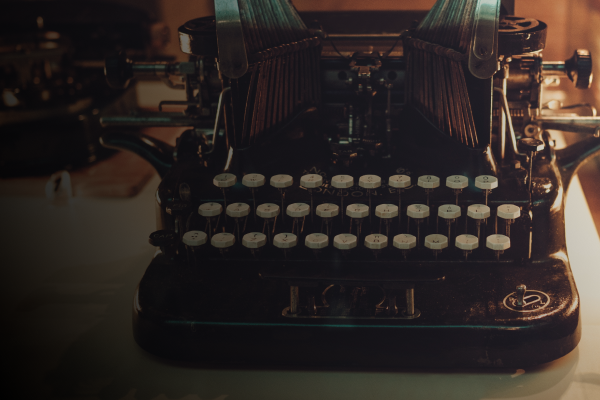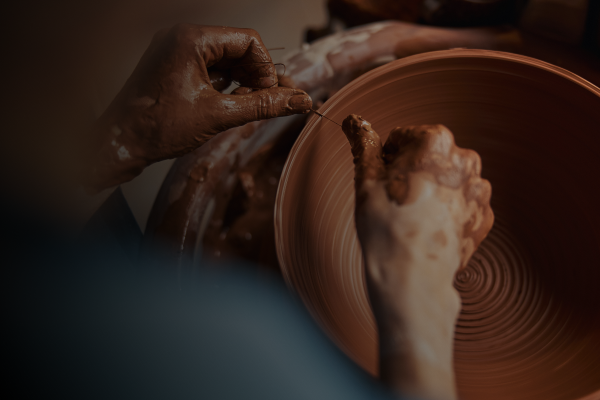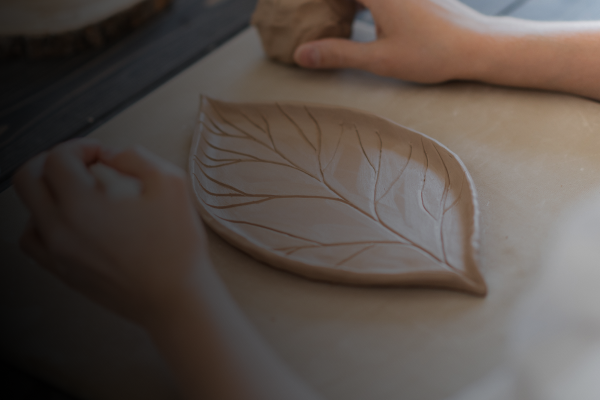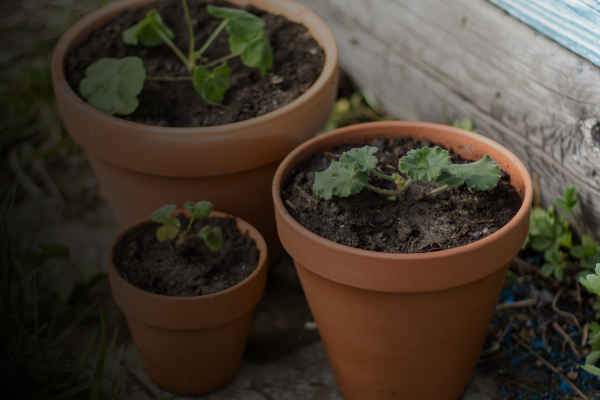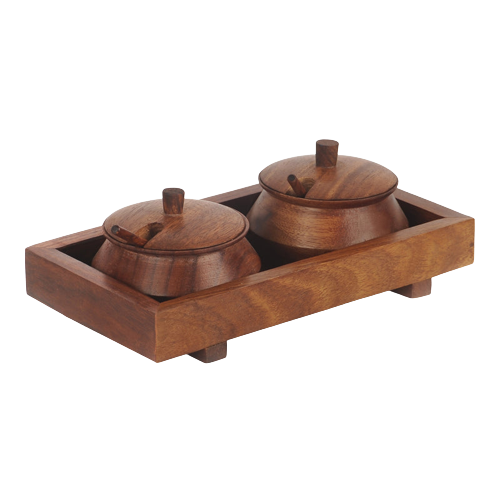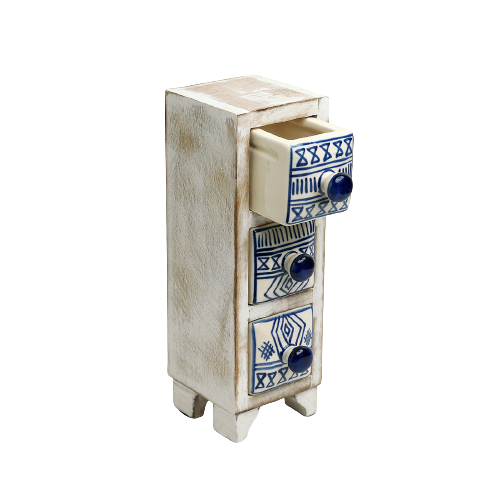Handmade Helpful
Art is a diverse range of human activity, and resulting product, that involves creative or imaginative talent expressive of technical proficiency, beauty, emotional power, or conceptual ideas.
Big Monthly Sale! Get 30% in 15 minutes! Check
Lorem Ipsum is simply dummy text of the printing and typesetting industry.
Porcelain is a ceramic material made by heating materials, generally including kaolin, in a kiln to temperatures between 1,200 and 1,400 °C (2,200 and 2,600 °F). The toughness, strength and translucence of porcelain, relative to other types of pottery, arises mainly from vitrification and the formation of the mineral mullite within the body at these high temperatures. Properties associated with porcelain include low permeability and elasticity.
Beautiful Pattern And Colors:Gold with embossed increase the mystery aesthetic for your personal decoration. Versatility: It's a perfect gift for your friends and best wishes to him and a good collector/decorator for your home,office,party,wedding; Also It can be a props for photography,or a costumes props in Halloween or costume party,highly exotic taste will brighten everyone's eyes.
Porcelain is a ceramic material made by heating materials, generally including kaolin, in a kiln to temperatures between 1,200 and 1,400 °C (2,200 and 2,600 °F). The toughness, strength and translucence of porcelain, relative to other types of pottery, arises mainly from vitrification and the formation of the mineral mullite within the body at these high temperatures. Properties associated with porcelain include low permeability and elasticity.
Size # 6 x 5 inches , Marine brass vintage binoculars - Handmade antique collection by collectiblesBuy Material Used: Brass & Leather - Genuine material 100% authentic Manufacturer CollectiblesBuy Finish Brass is processed to give antique finish & leather is buffed for better grey leather color.
Porcelain is a ceramic material made by heating materials, generally including kaolin, in a kiln to temperatures between 1,200 and 1,400 °C (2,200 and 2,600 °F). The toughness, strength and translucence of porcelain, relative to other types of pottery, arises mainly from vitrification and the formation of the mineral mullite within the body at these high temperatures. Properties associated with porcelain include low permeability and elasticity.
Porcelain is a ceramic material made by heating materials, generally including kaolin, in a kiln to temperatures between 1,200 and 1,400 °C (2,200 and 2,600 °F). The toughness, strength and translucence of porcelain, relative to other types of pottery, arises mainly from vitrification and the formation of the mineral mullite within the body at these high temperatures. Properties associated with porcelain include low permeability and elasticity.
Porcelain is a ceramic material made by heating materials, generally including kaolin, in a kiln to temperatures between 1,200 and 1,400 °C (2,200 and 2,600 °F). The toughness, strength and translucence of porcelain, relative to other types of pottery, arises mainly from vitrification and the formation of the mineral mullite within the body at these high temperatures. Properties associated with porcelain include low permeability and elasticity.
Porcelain is a ceramic material made by heating materials, generally including kaolin, in a kiln to temperatures between 1,200 and 1,400 °C (2,200 and 2,600 °F). The toughness, strength and translucence of porcelain, relative to other types of pottery, arises mainly from vitrification and the formation of the mineral mullite within the body at these high temperatures. Properties associated with porcelain include low permeability and elasticity.
Porcelain is a ceramic material made by heating materials, generally including kaolin, in a kiln to temperatures between 1,200 and 1,400 °C (2,200 and 2,600 °F). The toughness, strength and translucence of porcelain, relative to other types of pottery, arises mainly from vitrification and the formation of the mineral mullite within the body at these high temperatures. Properties associated with porcelain include low permeability and elasticity.
Tube Size: 6" inches, Weight:270 Grams. Leather box small telescope brass carving design. Color :Brass antique, Material Used: Brass & Leather - Made of Fine raw leather and solid brass Usage:Home Decoration, As a gift, Bird Watching etc - can be a small beautiful remembrance gift which lasts forever
Porcelain is a ceramic material made by heating materials, generally including kaolin, in a kiln to temperatures between 1,200 and 1,400 °C (2,200 and 2,600 °F). The toughness, strength and translucence of porcelain, relative to other types of pottery, arises mainly from vitrification and the formation of the mineral mullite within the body at these high temperatures. Properties associated with porcelain include low permeability and elasticity.
Porcelain is a ceramic material made by heating materials, generally including kaolin, in a kiln to temperatures between 1,200 and 1,400 °C (2,200 and 2,600 °F). The toughness, strength and translucence of porcelain, relative to other types of pottery, arises mainly from vitrification and the formation of the mineral mullite within the body at these high temperatures. Properties associated with porcelain include low permeability and elasticity.
Decoration statue:Perfect decor for living rooms, dens, gardens, offices, or art classes, It will looks wonderful on your bookshelf. Size:5” Dragon Bell,The size is the same as the palm of your hand, it can be placed in your hand, small and beautiful. Material: Doanpusi Dragon Bell is made of bronze, Pleasing sound can be heard when the bronze lock hits the bell. Best Gift: Buddha Statue for meditation or yoga lovers, can be used as Buddhist ornament as well as gift for others. Feng Shui statue: This small decorative Dragon Bell incense burner statue is sure to bring good luck and happy vibes into your home and garden.
Porcelain is a ceramic material made by heating materials, generally including kaolin, in a kiln to temperatures between 1,200 and 1,400 °C (2,200 and 2,600 °F). The toughness, strength and translucence of porcelain, relative to other types of pottery, arises mainly from vitrification and the formation of the mineral mullite within the body at these high temperatures. Properties associated with porcelain include low permeability and elasticity.
Porcelain is a ceramic material made by heating materials, generally including kaolin, in a kiln to temperatures between 1,200 and 1,400 °C (2,200 and 2,600 °F). The toughness, strength and translucence of porcelain, relative to other types of pottery, arises mainly from vitrification and the formation of the mineral mullite within the body at these high temperatures. Properties associated with porcelain include low permeability and elasticity.
Porcelain is a ceramic material made by heating materials, generally including kaolin, in a kiln to temperatures between 1,200 and 1,400 °C (2,200 and 2,600 °F). The toughness, strength and translucence of porcelain, relative to other types of pottery, arises mainly from vitrification and the formation of the mineral mullite within the body at these high temperatures. Properties associated with porcelain include low permeability and elasticity;
Porcelain is a ceramic material made by heating materials, generally including kaolin, in a kiln to temperatures between 1,200 and 1,400 °C (2,200 and 2,600 °F). The toughness, strength and translucence of porcelain, relative to other types of pottery, arises mainly from vitrification and the formation of the mineral mullite within the body at these high temperatures. Properties associated with porcelain include low permeability and elasticity;
Porcelain is a ceramic material made by heating materials, generally including kaolin, in a kiln to temperatures between 1,200 and 1,400 °C (2,200 and 2,600 °F). The toughness, strength and translucence of porcelain, relative to other types of pottery, arises mainly from vitrification and the formation of the mineral mullite within the body at these high temperatures. Properties associated with porcelain include low permeability and elasticity.
Porcelain is a ceramic material made by heating materials, generally including kaolin, in a kiln to temperatures between 1,200 and 1,400 °C (2,200 and 2,600 °F). The toughness, strength and translucence of porcelain, relative to other types of pottery, arises mainly from vitrification and the formation of the mineral mullite within the body at these high temperatures. Properties associated with porcelain include low permeability and elasticity.
Porcelain is a ceramic material made by heating materials, generally including kaolin, in a kiln to temperatures between 1,200 and 1,400 °C (2,200 and 2,600 °F). The toughness, strength and translucence of porcelain, relative to other types of pottery, arises mainly from vitrification and the formation of the mineral mullite within the body at these high temperatures. Properties associated with porcelain include low permeability and elasticity.
Porcelain is a ceramic material made by heating materials, generally including kaolin, in a kiln to temperatures between 1,200 and 1,400 °C (2,200 and 2,600 °F). The toughness, strength and translucence of porcelain, relative to other types of pottery, arises mainly from vitrification and the formation of the mineral mullite within the body at these high temperatures. Properties associated with porcelain include low permeability and elasticity.
Porcelain is a ceramic material made by heating materials, generally including kaolin, in a kiln to temperatures between 1,200 and 1,400 °C (2,200 and 2,600 °F). The toughness, strength and translucence of porcelain, relative to other types of pottery, arises mainly from vitrification and the formation of the mineral mullite within the body at these high temperatures. Properties associated with porcelain include low permeability and elasticity.
Porcelain is a ceramic material made by heating materials, generally including kaolin, in a kiln to temperatures between 1,200 and 1,400 °C (2,200 and 2,600 °F). The toughness, strength and translucence of porcelain, relative to other types of pottery, arises mainly from vitrification and the formation of the mineral mullite within the body at these high temperatures. Properties associated with porcelain include low permeability and elasticity;
Porcelain is a ceramic material made by heating materials, generally including kaolin, in a kiln to temperatures between 1,200 and 1,400 °C (2,200 and 2,600 °F). The toughness, strength and translucence of porcelain, relative to other types of pottery, arises mainly from vitrification and the formation of the mineral mullite within the body at these high temperatures. Properties associated with porcelain include low permeability and elasticity.
Porcelain is a ceramic material made by heating materials, generally including kaolin, in a kiln to temperatures between 1,200 and 1,400 °C (2,200 and 2,600 °F). The toughness, strength and translucence of porcelain, relative to other types of pottery, arises mainly from vitrification and the formation of the mineral mullite within the body at these high temperatures. Properties associated with porcelain include low permeability and elasticity.
Decoration statue:Perfect decor for living rooms, dens, gardens, offices, or art classes, It will looks wonderful on your bookshelf. Size:5” Dragon Bell,The size is the same as the palm of your hand, it can be placed in your hand, small and beautiful. Material: Doanpusi Dragon Bell is made of bronze, Pleasing sound can be heard when the bronze lock hits the bell. Best Gift: Buddha Statue for meditation or yoga lovers, can be used as Buddhist ornament as well as gift for others. Feng Shui statue: This small decorative Dragon Bell incense burner statue is sure to bring good luck and happy vibes into your home and garden.
Porcelain is a ceramic material made by heating materials, generally including kaolin, in a kiln to temperatures between 1,200 and 1,400 °C (2,200 and 2,600 °F). The toughness, strength and translucence of porcelain, relative to other types of pottery, arises mainly from vitrification and the formation of the mineral mullite within the body at these high temperatures. Properties associated with porcelain include low permeability and elasticity.
Beautiful Pattern And Colors:Gold with embossed increase the mystery aesthetic for your personal decoration. Versatility: It's a perfect gift for your friends and best wishes to him and a good collector/decorator for your home,office,party,wedding; Also It can be a props for photography,or a costumes props in Halloween or costume party,highly exotic taste will brighten everyone's eyes.
Porcelain is a ceramic material made by heating materials, generally including kaolin, in a kiln to temperatures between 1,200 and 1,400 °C (2,200 and 2,600 °F). The toughness, strength and translucence of porcelain, relative to other types of pottery, arises mainly from vitrification and the formation of the mineral mullite within the body at these high temperatures. Properties associated with porcelain include low permeability and elasticity.
Porcelain is a ceramic material made by heating materials, generally including kaolin, in a kiln to temperatures between 1,200 and 1,400 °C (2,200 and 2,600 °F). The toughness, strength and translucence of porcelain, relative to other types of pottery, arises mainly from vitrification and the formation of the mineral mullite within the body at these high temperatures. Properties associated with porcelain include low permeability and elasticity.
Porcelain is a ceramic material made by heating materials, generally including kaolin, in a kiln to temperatures between 1,200 and 1,400 °C (2,200 and 2,600 °F). The toughness, strength and translucence of porcelain, relative to other types of pottery, arises mainly from vitrification and the formation of the mineral mullite within the body at these high temperatures. Properties associated with porcelain include low permeability and elasticity.
Porcelain is a ceramic material made by heating materials, generally including kaolin, in a kiln to temperatures between 1,200 and 1,400 °C (2,200 and 2,600 °F). The toughness, strength and translucence of porcelain, relative to other types of pottery, arises mainly from vitrification and the formation of the mineral mullite within the body at these high temperatures. Properties associated with porcelain include low permeability and elasticity.
Porcelain is a ceramic material made by heating materials, generally including kaolin, in a kiln to temperatures between 1,200 and 1,400 °C (2,200 and 2,600 °F). The toughness, strength and translucence of porcelain, relative to other types of pottery, arises mainly from vitrification and the formation of the mineral mullite within the body at these high temperatures. Properties associated with porcelain include low permeability and elasticity.
Porcelain is a ceramic material made by heating materials, generally including kaolin, in a kiln to temperatures between 1,200 and 1,400 °C (2,200 and 2,600 °F). The toughness, strength and translucence of porcelain, relative to other types of pottery, arises mainly from vitrification and the formation of the mineral mullite within the body at these high temperatures. Properties associated with porcelain include low permeability and elasticity;
Porcelain is a ceramic material made by heating materials, generally including kaolin, in a kiln to temperatures between 1,200 and 1,400 °C (2,200 and 2,600 °F). The toughness, strength and translucence of porcelain, relative to other types of pottery, arises mainly from vitrification and the formation of the mineral mullite within the body at these high temperatures. Properties associated with porcelain include low permeability and elasticity.
Size # 6 x 5 inches , Marine brass vintage binoculars - Handmade antique collection by collectiblesBuy Material Used: Brass & Leather - Genuine material 100% authentic Manufacturer CollectiblesBuy Finish Brass is processed to give antique finish & leather is buffed for better grey leather color.
Tube Size: 6" inches, Weight:270 Grams. Leather box small telescope brass carving design. Color :Brass antique, Material Used: Brass & Leather - Made of Fine raw leather and solid brass Usage:Home Decoration, As a gift, Bird Watching etc - can be a small beautiful remembrance gift which lasts forever
Porcelain is a ceramic material made by heating materials, generally including kaolin, in a kiln to temperatures between 1,200 and 1,400 °C (2,200 and 2,600 °F). The toughness, strength and translucence of porcelain, relative to other types of pottery, arises mainly from vitrification and the formation of the mineral mullite within the body at these high temperatures. Properties associated with porcelain include low permeability and elasticity.
Porcelain is a ceramic material made by heating materials, generally including kaolin, in a kiln to temperatures between 1,200 and 1,400 °C (2,200 and 2,600 °F). The toughness, strength and translucence of porcelain, relative to other types of pottery, arises mainly from vitrification and the formation of the mineral mullite within the body at these high temperatures. Properties associated with porcelain include low permeability and elasticity.
Porcelain is a ceramic material made by heating materials, generally including kaolin, in a kiln to temperatures between 1,200 and 1,400 °C (2,200 and 2,600 °F). The toughness, strength and translucence of porcelain, relative to other types of pottery, arises mainly from vitrification and the formation of the mineral mullite within the body at these high temperatures. Properties associated with porcelain include low permeability and elasticity.
Porcelain is a ceramic material made by heating materials, generally including kaolin, in a kiln to temperatures between 1,200 and 1,400 °C (2,200 and 2,600 °F). The toughness, strength and translucence of porcelain, relative to other types of pottery, arises mainly from vitrification and the formation of the mineral mullite within the body at these high temperatures. Properties associated with porcelain include low permeability and elasticity.
Beautiful Pattern And Colors:Gold with embossed increase the mystery aesthetic for your personal decoration. Versatility: It's a perfect gift for your friends and best wishes to him and a good collector/decorator for your home,office,party,wedding; Also It can be a props for photography,or a costumes props in Halloween or costume party,highly exotic taste will brighten everyone's eyes.
Porcelain is a ceramic material made by heating materials, generally including kaolin, in a kiln to temperatures between 1,200 and 1,400 °C (2,200 and 2,600 °F). The toughness, strength and translucence of porcelain, relative to other types of pottery, arises mainly from vitrification and the formation of the mineral mullite within the body at these high temperatures. Properties associated with porcelain include low permeability and elasticity.
Size # 6 x 5 inches , Marine brass vintage binoculars - Handmade antique collection by collectiblesBuy Material Used: Brass & Leather - Genuine material 100% authentic Manufacturer CollectiblesBuy Finish Brass is processed to give antique finish & leather is buffed for better grey leather color.
Porcelain is a ceramic material made by heating materials, generally including kaolin, in a kiln to temperatures between 1,200 and 1,400 °C (2,200 and 2,600 °F). The toughness, strength and translucence of porcelain, relative to other types of pottery, arises mainly from vitrification and the formation of the mineral mullite within the body at these high temperatures. Properties associated with porcelain include low permeability and elasticity.
Porcelain is a ceramic material made by heating materials, generally including kaolin, in a kiln to temperatures between 1,200 and 1,400 °C (2,200 and 2,600 °F). The toughness, strength and translucence of porcelain, relative to other types of pottery, arises mainly from vitrification and the formation of the mineral mullite within the body at these high temperatures. Properties associated with porcelain include low permeability and elasticity.
Porcelain is a ceramic material made by heating materials, generally including kaolin, in a kiln to temperatures between 1,200 and 1,400 °C (2,200 and 2,600 °F). The toughness, strength and translucence of porcelain, relative to other types of pottery, arises mainly from vitrification and the formation of the mineral mullite within the body at these high temperatures. Properties associated with porcelain include low permeability and elasticity.
Porcelain is a ceramic material made by heating materials, generally including kaolin, in a kiln to temperatures between 1,200 and 1,400 °C (2,200 and 2,600 °F). The toughness, strength and translucence of porcelain, relative to other types of pottery, arises mainly from vitrification and the formation of the mineral mullite within the body at these high temperatures. Properties associated with porcelain include low permeability and elasticity.
Porcelain is a ceramic material made by heating materials, generally including kaolin, in a kiln to temperatures between 1,200 and 1,400 °C (2,200 and 2,600 °F). The toughness, strength and translucence of porcelain, relative to other types of pottery, arises mainly from vitrification and the formation of the mineral mullite within the body at these high temperatures. Properties associated with porcelain include low permeability and elasticity.
Tube Size: 6" inches, Weight:270 Grams. Leather box small telescope brass carving design. Color :Brass antique, Material Used: Brass & Leather - Made of Fine raw leather and solid brass Usage:Home Decoration, As a gift, Bird Watching etc - can be a small beautiful remembrance gift which lasts forever
Porcelain is a ceramic material made by heating materials, generally including kaolin, in a kiln to temperatures between 1,200 and 1,400 °C (2,200 and 2,600 °F). The toughness, strength and translucence of porcelain, relative to other types of pottery, arises mainly from vitrification and the formation of the mineral mullite within the body at these high temperatures. Properties associated with porcelain include low permeability and elasticity.
Porcelain is a ceramic material made by heating materials, generally including kaolin, in a kiln to temperatures between 1,200 and 1,400 °C (2,200 and 2,600 °F). The toughness, strength and translucence of porcelain, relative to other types of pottery, arises mainly from vitrification and the formation of the mineral mullite within the body at these high temperatures. Properties associated with porcelain include low permeability and elasticity.
Decoration statue:Perfect decor for living rooms, dens, gardens, offices, or art classes, It will looks wonderful on your bookshelf. Size:5” Dragon Bell,The size is the same as the palm of your hand, it can be placed in your hand, small and beautiful. Material: Doanpusi Dragon Bell is made of bronze, Pleasing sound can be heard when the bronze lock hits the bell. Best Gift: Buddha Statue for meditation or yoga lovers, can be used as Buddhist ornament as well as gift for others. Feng Shui statue: This small decorative Dragon Bell incense burner statue is sure to bring good luck and happy vibes into your home and garden.
Porcelain is a ceramic material made by heating materials, generally including kaolin, in a kiln to temperatures between 1,200 and 1,400 °C (2,200 and 2,600 °F). The toughness, strength and translucence of porcelain, relative to other types of pottery, arises mainly from vitrification and the formation of the mineral mullite within the body at these high temperatures. Properties associated with porcelain include low permeability and elasticity.
Porcelain is a ceramic material made by heating materials, generally including kaolin, in a kiln to temperatures between 1,200 and 1,400 °C (2,200 and 2,600 °F). The toughness, strength and translucence of porcelain, relative to other types of pottery, arises mainly from vitrification and the formation of the mineral mullite within the body at these high temperatures. Properties associated with porcelain include low permeability and elasticity.
Porcelain is a ceramic material made by heating materials, generally including kaolin, in a kiln to temperatures between 1,200 and 1,400 °C (2,200 and 2,600 °F). The toughness, strength and translucence of porcelain, relative to other types of pottery, arises mainly from vitrification and the formation of the mineral mullite within the body at these high temperatures. Properties associated with porcelain include low permeability and elasticity;
Porcelain is a ceramic material made by heating materials, generally including kaolin, in a kiln to temperatures between 1,200 and 1,400 °C (2,200 and 2,600 °F). The toughness, strength and translucence of porcelain, relative to other types of pottery, arises mainly from vitrification and the formation of the mineral mullite within the body at these high temperatures. Properties associated with porcelain include low permeability and elasticity;
Porcelain is a ceramic material made by heating materials, generally including kaolin, in a kiln to temperatures between 1,200 and 1,400 °C (2,200 and 2,600 °F). The toughness, strength and translucence of porcelain, relative to other types of pottery, arises mainly from vitrification and the formation of the mineral mullite within the body at these high temperatures. Properties associated with porcelain include low permeability and elasticity.
Porcelain is a ceramic material made by heating materials, generally including kaolin, in a kiln to temperatures between 1,200 and 1,400 °C (2,200 and 2,600 °F). The toughness, strength and translucence of porcelain, relative to other types of pottery, arises mainly from vitrification and the formation of the mineral mullite within the body at these high temperatures. Properties associated with porcelain include low permeability and elasticity.
Porcelain is a ceramic material made by heating materials, generally including kaolin, in a kiln to temperatures between 1,200 and 1,400 °C (2,200 and 2,600 °F). The toughness, strength and translucence of porcelain, relative to other types of pottery, arises mainly from vitrification and the formation of the mineral mullite within the body at these high temperatures. Properties associated with porcelain include low permeability and elasticity.
Porcelain is a ceramic material made by heating materials, generally including kaolin, in a kiln to temperatures between 1,200 and 1,400 °C (2,200 and 2,600 °F). The toughness, strength and translucence of porcelain, relative to other types of pottery, arises mainly from vitrification and the formation of the mineral mullite within the body at these high temperatures. Properties associated with porcelain include low permeability and elasticity.
Porcelain is a ceramic material made by heating materials, generally including kaolin, in a kiln to temperatures between 1,200 and 1,400 °C (2,200 and 2,600 °F). The toughness, strength and translucence of porcelain, relative to other types of pottery, arises mainly from vitrification and the formation of the mineral mullite within the body at these high temperatures. Properties associated with porcelain include low permeability and elasticity.
Porcelain is a ceramic material made by heating materials, generally including kaolin, in a kiln to temperatures between 1,200 and 1,400 °C (2,200 and 2,600 °F). The toughness, strength and translucence of porcelain, relative to other types of pottery, arises mainly from vitrification and the formation of the mineral mullite within the body at these high temperatures. Properties associated with porcelain include low permeability and elasticity;
Porcelain is a ceramic material made by heating materials, generally including kaolin, in a kiln to temperatures between 1,200 and 1,400 °C (2,200 and 2,600 °F). The toughness, strength and translucence of porcelain, relative to other types of pottery, arises mainly from vitrification and the formation of the mineral mullite within the body at these high temperatures. Properties associated with porcelain include low permeability and elasticity.
Porcelain is a ceramic material made by heating materials, generally including kaolin, in a kiln to temperatures between 1,200 and 1,400 °C (2,200 and 2,600 °F). The toughness, strength and translucence of porcelain, relative to other types of pottery, arises mainly from vitrification and the formation of the mineral mullite within the body at these high temperatures. Properties associated with porcelain include low permeability and elasticity.
Decoration statue:Perfect decor for living rooms, dens, gardens, offices, or art classes, It will looks wonderful on your bookshelf. Size:5” Dragon Bell,The size is the same as the palm of your hand, it can be placed in your hand, small and beautiful. Material: Doanpusi Dragon Bell is made of bronze, Pleasing sound can be heard when the bronze lock hits the bell. Best Gift: Buddha Statue for meditation or yoga lovers, can be used as Buddhist ornament as well as gift for others. Feng Shui statue: This small decorative Dragon Bell incense burner statue is sure to bring good luck and happy vibes into your home and garden.
Porcelain is a ceramic material made by heating materials, generally including kaolin, in a kiln to temperatures between 1,200 and 1,400 °C (2,200 and 2,600 °F). The toughness, strength and translucence of porcelain, relative to other types of pottery, arises mainly from vitrification and the formation of the mineral mullite within the body at these high temperatures. Properties associated with porcelain include low permeability and elasticity.
Beautiful Pattern And Colors:Gold with embossed increase the mystery aesthetic for your personal decoration. Versatility: It's a perfect gift for your friends and best wishes to him and a good collector/decorator for your home,office,party,wedding; Also It can be a props for photography,or a costumes props in Halloween or costume party,highly exotic taste will brighten everyone's eyes.
Porcelain is a ceramic material made by heating materials, generally including kaolin, in a kiln to temperatures between 1,200 and 1,400 °C (2,200 and 2,600 °F). The toughness, strength and translucence of porcelain, relative to other types of pottery, arises mainly from vitrification and the formation of the mineral mullite within the body at these high temperatures. Properties associated with porcelain include low permeability and elasticity.
Porcelain is a ceramic material made by heating materials, generally including kaolin, in a kiln to temperatures between 1,200 and 1,400 °C (2,200 and 2,600 °F). The toughness, strength and translucence of porcelain, relative to other types of pottery, arises mainly from vitrification and the formation of the mineral mullite within the body at these high temperatures. Properties associated with porcelain include low permeability and elasticity.
Porcelain is a ceramic material made by heating materials, generally including kaolin, in a kiln to temperatures between 1,200 and 1,400 °C (2,200 and 2,600 °F). The toughness, strength and translucence of porcelain, relative to other types of pottery, arises mainly from vitrification and the formation of the mineral mullite within the body at these high temperatures. Properties associated with porcelain include low permeability and elasticity.
Porcelain is a ceramic material made by heating materials, generally including kaolin, in a kiln to temperatures between 1,200 and 1,400 °C (2,200 and 2,600 °F). The toughness, strength and translucence of porcelain, relative to other types of pottery, arises mainly from vitrification and the formation of the mineral mullite within the body at these high temperatures. Properties associated with porcelain include low permeability and elasticity.
Porcelain is a ceramic material made by heating materials, generally including kaolin, in a kiln to temperatures between 1,200 and 1,400 °C (2,200 and 2,600 °F). The toughness, strength and translucence of porcelain, relative to other types of pottery, arises mainly from vitrification and the formation of the mineral mullite within the body at these high temperatures. Properties associated with porcelain include low permeability and elasticity.
Porcelain is a ceramic material made by heating materials, generally including kaolin, in a kiln to temperatures between 1,200 and 1,400 °C (2,200 and 2,600 °F). The toughness, strength and translucence of porcelain, relative to other types of pottery, arises mainly from vitrification and the formation of the mineral mullite within the body at these high temperatures. Properties associated with porcelain include low permeability and elasticity;
Porcelain is a ceramic material made by heating materials, generally including kaolin, in a kiln to temperatures between 1,200 and 1,400 °C (2,200 and 2,600 °F). The toughness, strength and translucence of porcelain, relative to other types of pottery, arises mainly from vitrification and the formation of the mineral mullite within the body at these high temperatures. Properties associated with porcelain include low permeability and elasticity.
Size # 6 x 5 inches , Marine brass vintage binoculars - Handmade antique collection by collectiblesBuy Material Used: Brass & Leather - Genuine material 100% authentic Manufacturer CollectiblesBuy Finish Brass is processed to give antique finish & leather is buffed for better grey leather color.
Tube Size: 6" inches, Weight:270 Grams. Leather box small telescope brass carving design. Color :Brass antique, Material Used: Brass & Leather - Made of Fine raw leather and solid brass Usage:Home Decoration, As a gift, Bird Watching etc - can be a small beautiful remembrance gift which lasts forever
Porcelain is a ceramic material made by heating materials, generally including kaolin, in a kiln to temperatures between 1,200 and 1,400 °C (2,200 and 2,600 °F). The toughness, strength and translucence of porcelain, relative to other types of pottery, arises mainly from vitrification and the formation of the mineral mullite within the body at these high temperatures. Properties associated with porcelain include low permeability and elasticity.
Porcelain is a ceramic material made by heating materials, generally including kaolin, in a kiln to temperatures between 1,200 and 1,400 °C (2,200 and 2,600 °F). The toughness, strength and translucence of porcelain, relative to other types of pottery, arises mainly from vitrification and the formation of the mineral mullite within the body at these high temperatures. Properties associated with porcelain include low permeability and elasticity.
Porcelain is a ceramic material made by heating materials, generally including kaolin, in a kiln to temperatures between 1,200 and 1,400 °C (2,200 and 2,600 °F). The toughness, strength and translucence of porcelain, relative to other types of pottery, arises mainly from vitrification and the formation of the mineral mullite within the body at these high temperatures. Properties associated with porcelain include low permeability and elasticity.
Lorem Ipsum is simply dummy text of the printing and typesetting industry. Lorem Ipsum has been the industry's standard dummy text ever since the 1500s, when an unknown printer took a galley of type and scrambled it to make a type specimen book.
Shop NowLorem Ipsum is simply dummy text of the printing and typesetting industry. Lorem Ipsum has been the industrys standard dummy.
Lorem Ipsum is simply dummy text of the printing and typesetting industry. Lorem Ipsum has been the industrys standard dummy.
Lorem Ipsum is simply dummy text of the printing and typesetting industry. Lorem Ipsum has been the industrys standard dummy.
Lorem Ipsum is simply dummy text of the printing and typesetting industry. Lorem Ipsum has been the industrys standard dummy.
Art is a diverse range of human activity, and resulting product, that involves creative or imaginative talent expressive of technical proficiency, beauty, emotional power, or conceptual ideas.
Use bubbles as a medium for creating unique and colorful artwork. You can mix paint or food coloring with bubble solution, blow bubbles onto paper or canvas, and capture the beautiful patterns and shapes they create. The result can be a lovely and crafty masterpiece.
"The Creative Stitch is a captivating fusion of artistry and needlework, where stitches come alive with imagination. It is a realm where fabric becomes a canvas, and threads transform into vibrant pigments, weaving stories and emotions through every delicate stitch.
Art is a diverse range of human activity, and resulting product, that involves creative or imaginative talent expressive of technical proficiency, beauty, emotional power, or conceptual ideas.
Lorem Ipsum is simply dummy text of the printing and typesetting industry. Lorem Ipsum has been the industrys standard dummy.

